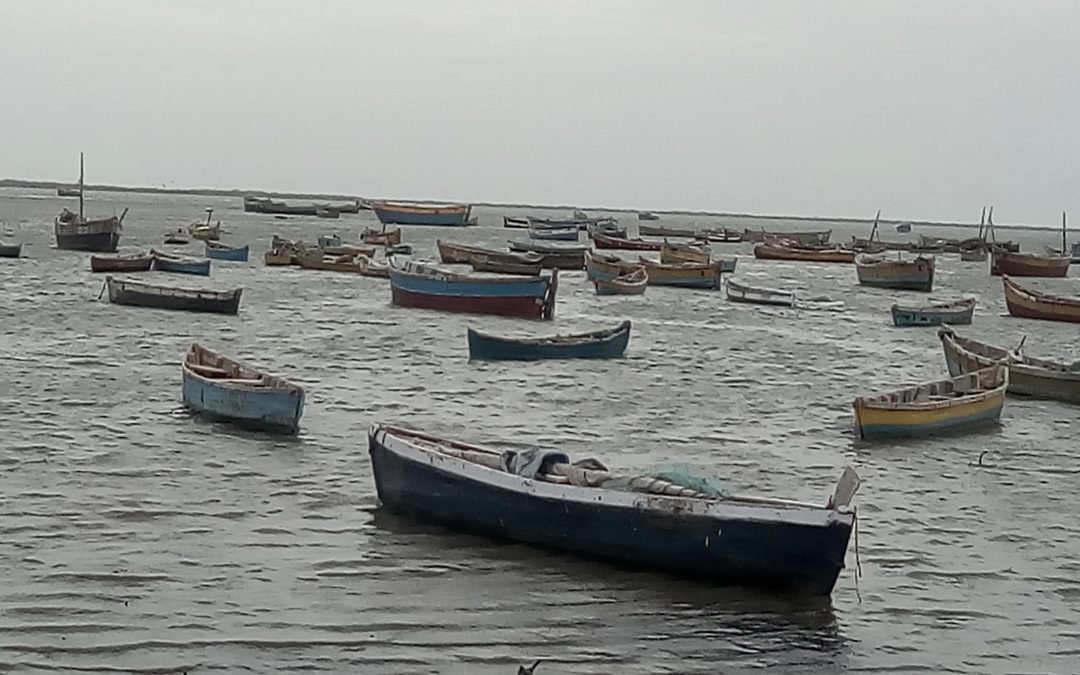Nambu Rajkumar of Rameswaram had just bought a new boat. But, even before he could start repaying the loans he took for the boat, the Sri Lankan navy seized it. “In July 2016 our boat got captured. That was the only means of our livelihood. After it was seized, I came under terrible stress. I did some minor trading for the past 2 years and am supporting myself and the family dependent on me”, he is saying.
The boat of S Gladson, bought at a cost of Rs 25 lakh, was also a new one. He says that on June 8 2016, some Sri Lankan navy men took away his boat, and adds that as it was a new boat, it may require not less than Rs 5 lakh for doing the engine work. “I learnt that water has entered the boat. I believe it can be pumped out, and the boat can be brought here and set right”, he is hoping.
Out of the total boats seized by the Sri Lankan navy from 24.02.2015 to 07.07.2018, only 183 boats remain to be released. Five boats were captured in July. Since cases have been registered against those as per the Sri Lankan government’s new law, their release is doubtful. Sri Lankan officials say that of the 183 boats released, 69 can be repaired and reused. But fishermen that even for repairing these 69 boats, it may take anything between Rs 5 to 15 lakh.
While Nambu Rajukumar and Gladson say that as their boats are new, they will bring those back, get them repaired and continue with their profession, M Gisovo however regrets that he will not be able to retrieve his boat now. “My boat is worth Rs 15 lakh, but for repairing it, it may take as much as Rs 20 lakh at present. It is nothing but a waste of money”. He adds that two boats belonging to his family were seized, and one of them has already been released by the Sri Lanka. “For fixing that boat released by that government, we had to spend up to Rs 8 lakh. The Tamil Nadu government gave a compensation of only Rs 5 lakh. But even if the other boat is retrieved, it is not in a repairable condition at all”, he adds further.
The Sri Lankan government had already released 42 boats, but of those only 32 are fit to be brought back. For the remaining boats which are beyond redemption, the Tamil Nadu government has announced a compensation of Rs 5 lakh each.
In the meantime, the belated announcement of the Sri Lanka government on the release of boats is not going to result in any significant benefit for the Tamil Nadu fishing boat owners, as per the state General Secretary of the Confederation of Tamil Nadu Fishermen’s Union, C R Senthil Vel. “Had these boats been released at the right time, Tamil fishermen could have saved themselves from financial loss. But now, when Sri Lanka has just introduced a new law and is implementing it, they might have just made this announcement only to please India”, he adds further. He also says “There is absolutely no use for the fishermen from these damaged boats and hence, based on the nature of the boats, they should get compensations ranging from Rs 25 to 50 lakh”, he feels.
M Elango, the president of the National Fishermen’s Association and former MLA of Puducherry, agrees with Senthil Vel. “Previously, the Sri Lankan government didn’t bother to release the boats even when the Indian government insisted on it; because they thought that if the boats are given back, the Tamil Nadu fishermen may once again return to the Sri Lankan waters for fishing. And the only reason for the Sri Lankan government returning the damaged boats to the fishermen now is that these boats are occupying their valuable space. They are also saying that if the Tamilfishermen do not take back their heavily-damaged boats, those will be auctioned away. If it is so, then due financial relief should be obtained from the Sri Lankan government and given to fishermen. If that is not possible, then the government should provide to them a compensation of Rs 50 lakh per boat”, he insists.











